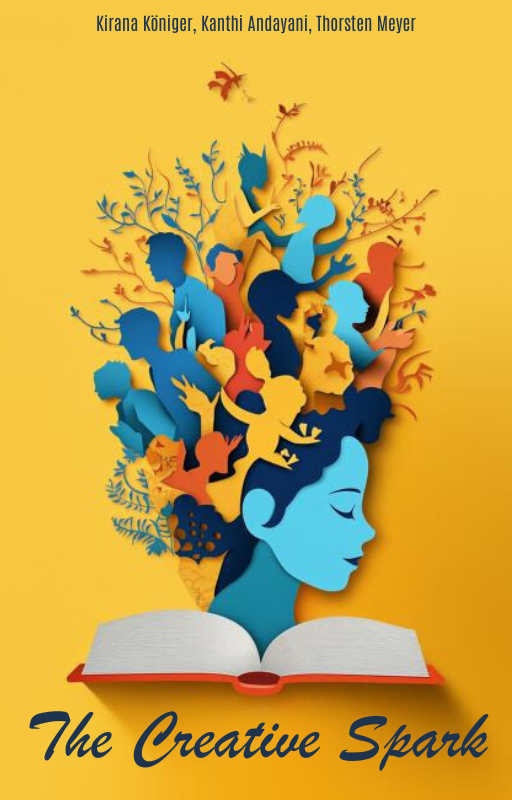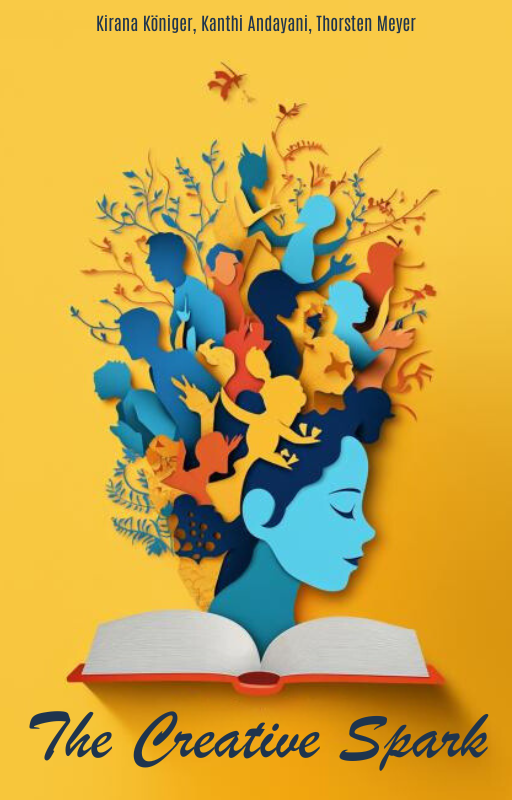Personal Growth
Mastering Proactive Action: Unleashing the Power of Initiative and Success

Being proactive in your life means being willing to take the initiative and take action. It means more than just reacting to situations as they arise, but actively planning ahead so that you are prepared for anything. By adopting a proactive mindset, you can create a path to success by taking the necessary steps to achieve your goals.
When it comes down to it, proactively taking charge of your life means having the courage and conviction to go out into the world and make things happen – not waiting around until something happens on its own. Being proactive isn’t about just getting stuff done but also recognizing opportunities that are presented before they pass by. Having this kind of mindset allows us to live our lives fully without worrying about missing out or not making the most of what we have.
At its core, taking proactive action is about understanding yourself better as well as setting goals for yourself based on your values, strengths, and interests. With these elements combined, you are set up for success no matter what path lies ahead; all it takes is a bit of courage and commitment!
With knowledge in hand of what taking proactive action looks like, let’s explore some of the many benefits associated with doing so…
Benefits Of Taking Action
Taking proactive action in life is like a lighthouse beacon, illuminating our paths and showing us the way forward. When we take proactive action, we reap great rewards. Action taking can bring about change that you never thought possible! It helps to create a sense of purpose and direction. By implementing a proactive approach, one can gain clarity on their goals and objectives as well as develop self-confidence.
On top of this, being action oriented gives us an opportunity to learn valuable lessons along the journey. We may discover something new about ourselves or come up with innovative approaches for problem solving. Taking effective actions empowers us to make positive impacts on others while also pushing our personal boundaries so that we can reach greater heights in life. In addition, it teaches us how to become more mindful of our thoughts and emotions which leads to better decision making skills in the future.
We should not overlook the importance of proactively engaging with life’s challenges and opportunities; doing so provides invaluable insight into what works best for us individually as well as collectively as a society. As such, it is important for each of us to embrace the benefits that flow from taking active steps towards success in all areas of life. With dedication and perseverance, we have the potential to achieve incredible things if we just choose to act! Moving ahead then, let’s now focus on identifying goals & objectives…
Identifying Goals And Objectives
When you take proactive action in your life, you can learn how to identify and set goals for yourself. This is an important step towards achieving success! Here are three things that come into play when it comes to identifying goals:
- Making plans – You need to have a plan of action if you want to reach any targets. It’s important to consider the big picture and then break down each individual step needed to get there.
- Setting objectives – Objectives turn your dreams into measurable tasks which are easier to achieve. Once they’re broken down into smaller chunks, they become more manageable.
- Reaching targets – When you know what needs to be done, make an effort everyday to reach those milestones until you achieve success.
By taking proactive action and proactively working on these steps, you will be able to move closer towards reaching your desired outcome. Taking this approach allows you the opportunity to focus on setting priorities as well as managing expectations along the way. As such, it’s essential that you build momentum by keeping yourself motivated throughout the process.
Setting Priorities
When you take proactive action in your life, there are many valuable lessons to be learned. In order to reach any goal, it is essential that we set our priorities and manage our time wisely. As the saying goes: “If you want something done right, do it yourself” – and this couldn’t be truer when trying to achieve success in life.
Symbolism can help us identify which tasks are most important for us to complete first. For instance, if your goal is to get a degree then symbolically think of this as climbing up a mountain; each step takes you closer to achieving the summit. By breaking down large goals into smaller ones and prioritizing them accordingly, reaching the top becomes much more achievable than attempting to climb the entire mountain at once!
| Prioritizing Tasks | Time Management | Organizing Goals | Goal Setting | Self-Motivation |
|---|---|---|---|---|
| Create deadlines | Schedule | Set SMART goals | Breakdown tasks | Visualize results |
| Prioritize needs | Focus on one task | Analyze risks | Establish rules | Reward yourself |
| Delegate duties | Eliminate distractions | Track progress | ||
| Be mindful of time spent |
Setting priorities allows us to make decisions quickly based on what’s important and necessary in order to reach our desired outcome – without getting overwhelmed by too much information or feeling like we need more time. When we prioritize our tasks effectively, it also helps with focus because we know exactly what steps must be taken in order for us to succeed. This eliminates confusion or uncertainty about how best to proceed with specific projects or challenges that may come up along the way.
Taking proactive action requires discipline, self-discipline being key among them – particularly when faced with difficult moments or times where motivation isn’t present. Taking ownership of our own destiny means having faith in ourselves and believing that anything is possible so long as we put in effort and stay focused on the end result no matter what obstacles may arise during the journey toward success. Making decisions quickly while staying organized makes it easier for us to stay consistent and achieve whatever goals we have set out for ourselves.
Making Decisions Quickly
Making decisions quickly is an important part of taking proactive action in your life. When you make quick and decisive choices, you can move forward faster towards achieving your goals. Here are the top four ways to help you make better decisions:
- Identify what’s at stake – Understand clearly why a decision needs to be made and assess the consequences that come with it.
- Gather information – Take time to understand all sides of any issue or situation before making a choice.
- Set parameters – Establish clear boundaries for how much time and effort is dedicated to each decision-making process.
- Prioritize effectively – Develop strategies for managing your time and resources so that decisions can be made quickly without sacrificing quality or accuracy.
By mastering these techniques, you will become more confident when faced with tough choices while also gaining valuable insight into yourself and your priorities. Additionally, taking proactive action by making decisions quickly allows you to stay ahead of potential problems or setbacks that may arise in the future. You’ll find greater success as well as increased satisfaction from taking charge of your own destiny!
Developing Self-Discipline
One of the most important skills we can learn in life is developing self-discipline. Studies have shown that people with higher levels of self-discipline are more successful and happier than those who lack it. So, what exactly can you learn when you take proactive action to develop self-discipline? Here’s a look at the top 10 things:
- The ability to set goals for yourself and stick to them – Developing self-discipline means setting realistic goals for yourself and having the willpower to stick to them – no matter how hard they may be! This helps us stay focused on our objectives so that we don’t get distracted by other tasks or activities.
- Taking responsibility for your actions – Self-disciplined people recognize their mistakes and take full ownership over them instead of making excuses or blaming others. They also accept feedback readily and use it as an opportunity to improve themselves.
- Knowing when enough is enough – If something isn’t working out, disciplined individuals know when it’s time to move on rather than sticking around in hopes of achieving success eventually. By doing this, they make sure not to waste any unnecessary effort or energy on unproductive endeavors.
- Cultivating patience – Patience is key when it comes to developing self-discipline because without it, one often gives up too quickly before even giving oneself a chance to succeed. With patience comes greater focus, determination and commitment towards accomplishing desired results which further reinforces the habit of discipline itself.
- Practicing delayed gratification – Delaying immediate rewards allows us to practice restraint while focusing on long term outcomes such as career advancement, financial security etc., which ultimately leads us closer towards achieving our ultimate goal(s).
- Avoiding impulsive decisions – Impulsivity almost always ends up resulting in regretful situations down the line due its shortsightedness; thus being able to think twice before taking any bold steps requires strong will power..
- Strengthening mental toughness– Mental toughness refers to staying resilient through difficult times by believing in oneself and remaining positive despite whatever hardships come along the way; this trait is essential for anyone trying cultivate a disciplined lifestyle since setbacks are inevitable during big undertakings such as starting a business or learning new skillsets from scratch.. 8 . Learning how remain organized – Organization goes hand in hand with discipline since both require careful planning, strategizing and implementation of necessary procedures/processes if progress is expected whereas disorganization usually leads to confusion and chaos thereby wasting valuable resources (time & money) throughout its duration.. 9 . Being mindful about your habits – We all possess certain habits that might derail us from reaching our endgoal unless proper awareness concerning these patterns exist whereby corrective measures can then be taken prior correcting existing behavioral issues like procrastination or laziness.. 10 . Developing resilience against failure– No matter how proficient someone becomes in terms of mastering disciplines within his/her field; failing at some point remains inevitable yet overcoming fear associated with failure requires tremendous courage enabling one become stronger each passing day until he/she reaches his/her destination gradually but surely!
Now that we’ve discussed what you can learn when taking proactive action toward developing self-discipline, let’s explore overcoming fear of failure next!
Overcoming Fear Of Failure
Fear of failure can be a crippling force in our lives. It stifles creativity, inhibits risk-taking and keeps us from stepping outside our comfort zones. But it doesn’t have to keep you stuck forever! Taking proactive action is the first step towards overcoming your fear of failure.
| Opportunity | Courage |
|---|---|
| Believe in yourself | Get comfortable with being uncomfortable |
| Find role models & mentors | Take small steps forward each day |
| Reframe negative thoughts | Celebrate successes, no matter how small |
| Identify what’s really at stake for you | Acknowledge that it’s OK to make mistakes and learn from them |
With opportunity comes courage. You must believe in yourself before you can take on any challenges life throws at you. Start by finding some role models or mentors who inspire you. This will help build up your confidence and give you more faith in yourself as well as giving you an idea of what success looks like. Next, reframe any negative thoughts about yourself into positive ones – this takes practice but has been shown to improve self-confidence over time. Lastly, identify what is truly important to you; know that there are far greater rewards than just money and recognition when taking risks in life. Knowing these stakes ahead of time will help boost your courage and willingness to try new things despite the fear of failure looming large.
When facing fear head-on, remember that it’s ok to make mistakes – they’re part of learning something new! Embrace every win, big or small – celebrate those little successes along the way which will further motivate and encourage your progress even if setbacks occur. By taking proactive action and equipping yourself with the right tools for success, such as believing in yourself, finding role models/mentors who motivate you and identifying what matters most to you, then nothing should stand between you and achieving your goals– not even fear itself! To reach the next level of personal development requires restructuring existing habits around mindset and behavior so that we can move closer towards our desired outcome without letting fear hold us back again.
Restructuring Your Habits
Taking proactive action in your life means restructuring and developing habits that will serve you in the long run. Creating a habit can take some time, but it’s well worth the effort! First of all, you need to understand what kind of behaviour is necessary for achieving success – this includes breaking bad habits and creating new ones. In order to do so, make sure you have clear goals in mind when forming a routine or practice. That way, each step taken towards reaching them will be more rewarding.
The next step is to create a plan on how to break old habits and form new ones. This could include making achievable daily goals or doing something that may initially feel uncomfortable – such as writing down everything you eat or keeping track of your expenses – which can help establish better discipline over time. Finally, remember that consistency is key: don’t give up if results don’t show immediately; keep at it until the desired outcome becomes second nature. With patience and dedication, positive changes are possible – even if they come slowly!
Now that we’ve discussed the importance of restructuring our habits, let’s look into planning for the future…
Planning For The Future
Taking proactive action in your life can be incredibly rewarding. You’ll find yourself with newfound confidence, focus and ambition as you take active steps to reach your goals. With a plan for the future, you can begin to make changes that will help you create a better future for yourself. Here are the top 10 things you can learn when taking proactive action:
- Crafting A Long-Term Plan – By developing a strategic long-term plan, you will have greater clarity about what is important and how to achieve it.
- Making Small Steps Towards Your Goals – Proactive action requires breaking down larger goals into smaller, achievable steps so that progress towards them is easier to manage and measure.
- Managing Stress & Creating Balance – Taking proactive action allows us to create balance in our lives by helping us prioritize tasks which helps reduce stress levels and increase motivation and productivity.
- Prioritizing Self Care – When we practice proactivity, we often become more aware of our own needs and how they factor into our overall wellness plans, leading to improved physical health and mental well being over time.
- Learning New Skills – We all need new skills from time to time; taking on new challenges actively encourages growth, learning and development opportunities which lead to self-improvement over time.
- Planning For The Future – Being able to look ahead at potential outcomes gives us an opportunity to prepare ourselves mentally for whatever comes next while giving us the chance to adjust course if needed along the way too!
- Thinking Strategically – Taking proactive actions enables us to think strategically about short term objectives while still considering their impact on longer term results as well as any possible risks associated with each decision made or task undertaken during this process.
8 Building Confidence & Trust In Yourself- As you begin taking control of your life through positive actions,you’ll build up trust in yourself and gain more confidence in making decisions independently without relying on external validation or approval from others firstly .
9 Identifying Personal Values & Beliefs– As we move forward in achieving success through proactivity ,we’re also given unique insight into understanding who we really are deep down inside based upon our values/beliefs .
10 Improving Outcomes Through Action– Last but not least ,by setting out clear intentions then following through with specific tactics ,we position ourselves for far better outcomes than simply drifting along aimlessly hoping something good will come eventually!
When planning for the future, it’s essential that we consider every angle before taking action—including both short-term gains versus long-term returns as well as assessing any potential risk involved in pursuing certain strategies against another path altogether instead! Increasing self awareness is key here since knowing how our individual thoughts/actions affect both present AND future circumstances lets us make informed judgments when deciding between multiple paths available today that could shape tomorrow’s reality either positively or negatively depending upon choices chosen right now !
Increasing Self-Awareness
When you take proactive action in your life, one of the key benefits is increased self-awareness. Self-awareness plays a vital role in understanding yourself and what makes you tick; it enables you to make better decisions that align with your values and goals. Having an accurate view of yourself allows for greater self-reflection and improvement over time.
Self-care activities such as journaling, meditation, or talking with friends can help you gain clarity on who you are and what matters most to you. These activities also offer opportunities for self-development by providing insight into areas where growth may be needed. It’s important to remain openminded when exploring these ideas so that new perspectives can arise from within.
It’s essential to nurture this newfound self-awareness through positive actions like setting intentions and taking small steps towards those intentions each day. Achieving success requires ongoing work and dedication – but having awareness of your strengths and weaknesses will give you the power to propel forward more quickly! With a clearer picture of who YOU are, the possibilities become unlimited – now let’s look at how developing a positive attitude can further benefit your journey!
Having A Positive Attitude
Having a positive attitude is essential for achieving success in life. It’s not only important to take proactive action, but also to maintain an attitude that will help you reach your goals. Attitude adjustment can be done by engaging in activities and strategies that promote positive thinking, such as:
| Positive Thinking | Positive Reinforcement |
|---|---|
| Visualization | Celebrate successes |
| Reframing situations | Focus on the positive |
| Identifying solutions | Reward progress made |
| Writing down affirmations or mantras | Remove negative influences from environment/life |
With this kind of mindset, you are able to overcome challenges and stay motivated despite any setbacks. You gain confidence in yourself and become more optimistic about future outcomes. Having a positive outlook helps us move forward instead of staying stagnant with our current situation. A healthy dose of optimism propels us towards greater heights!
Additionally, practicing self-care through relaxation techniques such as yoga or meditation can be beneficial for cultivating a healthy attitude toward oneself and one’s circumstances. This allows for more clarity and focus when it comes to taking proactive steps along your journey. By maintaining a vibrant inner state of being, we open ourselves up to new possibilities which leads us closer to our desired destination in life. Taking care of yourself is integral part of having an effective attitude adjustment process so that we may better tap into our higher potentials for growth!
So what does all this mean? What matters most is how we choose to perceive things; it’s how we look at obstacles presented before us and make choices based on those perspectives that counts the most. To have real impactful change in our lives, we must first start with changing our attitudes – letting go off limiting beliefs while embracing positivity and resilience within ourselves! Onward then to building healthy relationships!
Building Healthy Relationships
Transitioning from having a positive attitude, the next step is building healthy relationships. According to a survey conducted by Forbes in 2019, over 70% of people agree that their success in life can be attributed to strong relationships with others. When you take proactive action and build strong connections with those around you, there are many valuable things you can learn:
• Effective Communication – Learning how to effectively communicate your wants and needs when interacting with other allows for better understanding between both parties.
• Self-Love – Taking responsibility for your choices helps foster self-love through developing an awareness of yourself and what makes you unique.
• Empathy & Compassion – Becoming more aware of how your actions affect others enables us to show empathy and compassion towards one another.
• Respect – Understanding boundaries, setting limits, and valuing each person’s unique perspectives lead to mutual respect among all involved.
These skills are essential components of any successful relationship, whether it’s professional or personal. By taking the initiative to nurture these qualities within ourselves and our interactions with others, we create a foundation upon which all other aspects of our lives may thrive on. With this knowledge in hand, let us move forward into taking responsibility for our choices.
Taking Responsibility For Your Choices
It’s important to take responsibility for the choices we make and own our decisions. When we are accountable, it empowers us to create positive change in our lives. Taking personal responsibility is one of the most vital steps when looking for a sense of growth and progress.
| Benefits | Challenges |
|---|---|
| Fosters self-awareness | Can be emotionally taxing |
| Enhances autonomy & independence | Unforeseen obstacles can arise unexpectedly |
| Increases motivation & goal orientation | Difficult to confront reality without judgement or regret |
We must acknowledge that taking full ownership of our actions may not always result in immediate success but will ultimately teach us valuable lessons about ourselves. As long as we remain mindful and open minded, we can use these experiences to become wiser individuals and move forward with greater awareness. With each step taken towards making better decisions, comes an empowering feeling that allows us to gain clarity on how best to continue navigating life paths.
By recognizing our power of choice and taking charge of the outcomes within our control, we cultivate a deeper understanding of who we are and what matters most in life. This knowledge brings forth meaningful connections between daily decisions and their impact on both ourselves and others – helping us stay rooted in purposeful action.
Learning From Experiences
We often hear the phrase ‘you live and you learn’, but what does it really mean to learn from experiences? It means that we can benefit greatly from reflecting on our life’s journey, making mistakes, trying out different approaches, and learning valuable lessons along the way. When we take proactive action in our lives, experience-based learning is invaluable for helping us reach our goals.
When it comes to trial and error, it’s important to not be too hard on ourselves when things don’t go as planned. Sometimes, mistakes can be great teachers; they help us gain insight about where we need improvement or how to approach a situation differently in the future. By taking the time to reflect on past experiences with an open mind, we can identify patterns of behavior that are no longer serving us well, so that we can make better choices moving forward.
In addition to understanding why certain decisions didn’t work out as expected in the past, it’s also important to celebrate successes and acknowledge accomplishments – big and small! Doing this will help build confidence and encourage further growth. Allowing ourselves to appreciate these life lessons empowers us to take more risks while continuing on our path towards personal fulfillment.
Knowing When To Adapt
Taking proactive action in life is all about being prepared for when the situation changes. It’s important to be able to adapt and adjust our plans and strategies as needed, or else we risk getting stuck in a rut. Being flexible with our thinking allows us to make course corrections when necessary and take advantage of new opportunities that come up along the way.
To truly master adaptive behavior, it’s essential to understand what triggers change so you can anticipate them before they happen. Keeping an open-mind helps too; stay informed on current events and regularly assess your goals and objectives in order to identify any potential obstacles ahead of time. That way, if something unexpected should arise, you have the ability to immediately shift gears without having to waste time figuring out what went wrong.
Adapting doesn’t mean giving up either – it simply means adjusting our tactics according to whatever arises. Whether it’s finding alternative solutions or making minor tweaks here and there, staying agile ensures that we don’t get left behind when things start shifting around us. With practice, this type of mindset will become second nature and allow you to maintain control over your path even amidst unpredictable circumstances.
No matter how much planning goes into taking proactive action in life, sometimes adjustments need to be made on the fly – but rest assured that by learning how to recognize these moments and adapting accordingly, you’ll always remain one step ahead!
Frequently Asked Questions
How Do I Develop A Positive Attitude?
Do you feel like life has been getting in the way of your dreams? Are there times where it feels like negativity is slowly weighing down on you, preventing you from developing a positive attitude and outlook towards life? If so, then don’t worry – many of us have been in this situation before. It can be difficult to overcome these feelings of helplessness and self-doubt, but with the right tools and support, we can learn how to develop our emotional resilience and self-motivation.
When looking at ways to cultivate a more positive mindset, one must start by taking stock of their current emotions. Ask yourself questions such as “What am I feeling now? How could I adjust my thoughts or approach in order to better cope with these feelings?” This will allow you to gain insight into what triggers certain reactions within yourself, allowing for greater control over your own mental state. Additionally, this allows you to become aware of any negative thought patterns which may be keeping you stuck in a cycle of pessimism.
At the same time, it’s important to remember that simply having awareness isn’t enough – action must also be taken! Make an effort each day to practice gratitude and appreciation for everything that surrounds you; even if they’re small things like being able to enjoy a cup of coffee or seeing someone smile. Practicing optimism helps create inner strength while reinforcing new behaviours which are more conducive towards sustaining a brighter future.
By investing energy into developing our emotional resilience and improving our attitudes toward life itself, we open ourselves up to countless possibilities beyond what was previously considered achievable. So why not take proactive steps today towards building upon that positive attitude you’ve always wanted? You might just surprise yourself with all the potential outcomes awaiting your discovery!
What Strategies Can I Use To Overcome Fear Of Failure?
Overcoming fear of failure is one of the most important strategies to develop a positive attitude. When we take proactive action and face our fears, we gain confidence in ourselves and become more successful. However, it can be difficult to conquer this fear without the right tools and strategies. Thankfully, there are several ways that you can overcome your fear of failure:
- Acknowledge Your Fear: The first step towards overcoming your fear of failure is acknowledging its presence and accepting it as part of who you are. By recognizing that you have this feeling, you’ll be able to understand why it’s preventing you from taking risks and making progress in life.
- Identify What You’re Afraid Of: Once you recognize your fear, try to identify what exactly it is that scares you about failure so that you can work on addressing those specific issues. Are you afraid of losing out on an opportunity or letting someone down? Maybe it’s just a worry about not being good enough or having too much stress? Whatever the source may be, understanding the root cause will help give clarity when creating solutions for success.
- Create Actionable Strategies: Now comes the fun part! Brainstorm some actionable steps that will help you move forward despite any obstacles coming your way. This could involve setting realistic goals with achievable milestones – enabling yourself to measure progress along the way – or breaking down large projects into smaller tasks so they seem less overwhelming! Knowing how far away from achieving something makes it easier to stay motivated and focused on reaching success no matter what challenges arise during the process.
You don’t have to feel like a victim anymore; by applying these simple steps, anyone can learn how to conquer their fear of failure and achieve their goals with greater ease! Having a plan helps build resilience while also teaching us invaluable lessons such as perseverance and problem-solving skills which will come in handy regardless of whether we succeed or fail at something. So let go of any anxiety around failing and start embracing the possibilities that lay ahead – I promise you won’t regret it!
How Can I Set Priorities Effectively?
Have you ever been overwhelmed by all of the things that life throws your way? With so many responsibilities and tasks to do, it can be hard to find a sense of balance. That’s why learning how to set priorities effectively is essential for making sure you’re getting the most out of every day.
When I’m asked what strategies people can use to prioritize their objectives, my first piece of advice is this: Schedule time management. Decide on a realistic amount of time for each task and stick with it – no matter what! This will help give structure to your day and keep you focused on completing important items without letting them slip away or get lost in the shuffle.
The next step is managing expectations – both yours and those around you. Set boundaries when it comes to how much work you can reasonably accomplish in a certain amount of time, while also delegating tasks if needed. When other people are involved, communication is key; make sure everyone knows what they need to do and when they need to have it done by.
Here are four tips for setting priorities effectively:
- Break down large projects into smaller chunks that are easier to manage
- Make lists and check off completed tasks as soon as possible
- Put yourself first by taking regular breaks throughout the day
- Find ways to reward yourself after meeting goals or deadlines
If we’re willing to take proactive steps towards mastering our daily routines, not only will we feel more organized but also empowered by our newfound knowledge! Setting priorities isn’t always easy, but with some planning ahead, self-discipline, and an overall positive attitude we can start creating healthy habits that lead us closer towards reaching our full potential!
How Can I Identify And Set Achievable Goals?
When it comes to taking proactive action in your life, identifying and setting achievable goals is an essential part of the process. Goal-setting can be a challenging endeavor – but don’t worry, here are some tips you can use to get started:
First and foremost, in order to identify and set achievable goals, you must have clarity on what success looks like for you. A great way to do this is by defining the outcome that matters most for each goal. Once you have identified the desired outcomes for yourself, break down those goals into smaller steps which will help pave the path to achieving them. This will make them much more manageable!
Another important step when setting goals is to create accountability measures so that they remain top of mind as you work towards them. An effective way to stay accountable is through planning regular check-ins with someone who has similar aspirations or values – this person could be a friend, mentor or even an online support group. Additionally, give yourself rewards along the way if you manage to reach certain milestones within your timeline – positive reinforcement goes a long way!
Finally, remember not to overwhelm yourself with too many objectives at once – focus on one goal at a time and celebrate every small victory along your journey. Here’s a quick checklist of things that could help guide your goal-setting journey:
- Make sure your goals are realistic and attainable
- Break down large tasks into smaller ones
- Develop a plan of attack
- Use technology where possible (e.g., reminders)
- Create external accountability measures
Taking pro-active action doesn’t need to feel overwhelming – all it takes is some preparation and dedication from your end! Start off by breaking down what success means for each specific goal before mapping out how exactly you’re going to achieve it; soon enough, there won’t be any obstacles standing between you and reaching those dreams of yours!
How Can I Build Healthy Relationships?
Did you know that the average person spends over a quarter of their waking hours communicating with other people? That’s why relationship-building is such an important skill to have in life. Healthy relationships can help us feel connected, supported and understood in our lives.
Learning how to build healthy relationships starts with understanding interpersonal skills as well as communication techniques. This includes being able to listen attentively and respectfully, show empathy and express yourself clearly without being aggressive or passive-aggressive. Additionally, it’s important for us to be aware of cultural differences when building relationships with others. Practicing conflict resolution strategies also helps us navigate disagreements more effectively while maintaining strong connections with those around us.
Relationship-building isn’t just about making friends – it’s essential for developing lasting bonds with colleagues, family members, roommates and even strangers we interact with on a day-to-day basis. Taking proactive action by acquiring these skills will not only improve your ability to establish meaningful connections but also increase your confidence levels so that you can find joy in all types of social situations!
It may take some practice and patience at first, but mastering the art of healthy relationship-building is totally worth it! Knowing how to use your interpersonal skills and communication tools will enable you to foster long-term connections and make the most out of every interaction you have. So don’t let fear or uncertainty hold you back from taking this important step towards personal growth today!
Conclusion
Are you ready to take proactive action in your life and learn how to become the best version of yourself? Taking proactive steps can help you reach greater levels of success, happiness and fulfillment. When we start taking responsibility for our lives, it helps us discover who we truly are and what is important to us in life.
By proactively setting goals and establishing a positive mindset, we can achieve more than ever before. We can build healthier relationships, overcome fear of failure, prioritize effectively and develop an attitude that will bring out the best within us.
It’s time to take control of your life! Don’t be afraid to try new things or challenge yourself – this is when growth happens. You have the power within you; don’t let anyone tell you otherwise. So why wait any longer? What step will you take today towards achieving success and becoming the person you want to be?
Meet Nadi, the soulful writer and explorer of inner realms who graces OurMindAndBody.com with her profound insights and heartfelt wisdom. With a profound passion for mindfulness, meditation, and spiritual growth, Nadi weaves words that touch the hearts and minds of readers, leaving a lasting impact on their well-being journey.
Rooted in a background of philosophy and psychology, Nadi’s curiosity about the human mind and the mysteries of the soul led her on a transformative path of self-discovery. Drawn to the transformative power of mindfulness and meditation, she embarked on a quest to understand the intricacies of these practices, not only for her own growth but also to inspire others to embark on their own inner journeys.
Personal Growth
Book Review: “The Creative Spark: Unleashing Your Inner Artist”

Rediscovering Creativity in the Digital Age
In a world where digital distractions often overshadow our creative instincts, “The Creative Spark: Unleashing Your Inner Artist” emerges as a timely and empowering guide. Authored by Kirana Königer, Kanthi Andayani, and Thorsten Meyer, this book provides a comprehensive and accessible approach to reigniting the creative flame within each of us.
A Global Tapestry of Creative Wisdom
The authors draw on their diverse backgrounds—Indonesian roots, European influences, and global experiences—to weave a rich tapestry of creative insights. This multicultural perspective is not just a backdrop but the foundation of the book’s philosophy, which sees creativity as a universal language that transcends cultural and geographical boundaries.

Expanding the Boundaries of Creativity
“The Creative Spark” encourages readers to rethink creativity, moving beyond the traditional confines of the arts. The authors argue convincingly that creativity is a fundamental life skill, essential for problem-solving, personal growth, and professional success across all domains.
The Science of Creativity
Anchored in scientific research, the book explores:
- The neurological foundations of creativity
- The roles of different brain regions in creative thinking
- The impact of neuroplasticity on the development of creative skills
- How environment and lifestyle choices affect creative potential
Practical Exercises for Creative Development
Each chapter offers a variety of hands-on exercises designed to nurture creativity across different fields:
- Writing prompts to spark the imagination of aspiring authors
- Visual challenges for artists and designers
- Culinary experiments for food enthusiasts
- Mindfulness practices to enhance creative awareness
- Cross-disciplinary projects that blend multiple forms of artistic expression
Overcoming Creative Challenges
The book provides practical strategies for overcoming common obstacles in the creative process, including:
- Breaking through creative blocks and periods of stagnation
- Overcoming self-doubt and imposter syndrome
- Managing perfectionism and the fear of failure
- Balancing creative pursuits with everyday responsibilities
Creativity in the Digital Era
The authors thoughtfully examine how technology can both enhance and hinder creativity, discussing:
- The potential of digital tools to support creative processes
- Balancing digital and analog approaches to creativity
- Leveraging social media to share and promote creative work
- Addressing ethical considerations in the age of AI-generated art
A Journey of Self-Discovery
Throughout the book, the authors share personal stories from their own creative journeys, adding depth and relatability to the content. Readers are invited to embark on their own journey of self-discovery, guided by reflective questions and exercises designed to help uncover their unique creative strengths.
Critical Analysis
Strengths:
- A broad and inclusive approach that extends beyond traditional artistic boundaries
- A multicultural perspective offering a wealth of global insights
- A strong scientific foundation combined with practical applications
- An accessible tone that makes creativity approachable for all readers
Considerations:
- The broad scope of topics may be overwhelming for some readers
- Certain cultural references may resonate differently depending on the audience
- Some advanced readers may find familiar concepts, though they are presented with fresh insights
Conclusion: A Guide to Creative Renewal
“The Creative Spark: Unleashing Your Inner Artist” is more than just a guide to artistic expression—it’s a blueprint for living a more imaginative and fulfilling life. By redefining creativity as a core human trait, the authors offer a work that has the potential to transform not just how readers approach art, but how they approach life itself.
Rating: 4.85/5 stars
Highly recommended for its inclusive approach, scientific grounding, and transformative potential, “The Creative Spark” stands out as a valuable resource for anyone looking to reignite their creative passions and embrace a more inspired way of living.
Meet Nadi, the soulful writer and explorer of inner realms who graces OurMindAndBody.com with her profound insights and heartfelt wisdom. With a profound passion for mindfulness, meditation, and spiritual growth, Nadi weaves words that touch the hearts and minds of readers, leaving a lasting impact on their well-being journey.
Rooted in a background of philosophy and psychology, Nadi’s curiosity about the human mind and the mysteries of the soul led her on a transformative path of self-discovery. Drawn to the transformative power of mindfulness and meditation, she embarked on a quest to understand the intricacies of these practices, not only for her own growth but also to inspire others to embark on their own inner journeys.
Personal Growth
Clearing Brain Fog: Top Foods For Mental Clarity

Experiencing mental fog is like navigating through a dense forest without a map. It can be frustrating, exhausting, and hinder your ability to think clearly and be productive.
But fear not, because there is a way to clear the fog and regain mental clarity. By incorporating certain foods into your diet, you can nourish your brain and improve cognitive function.
In this article, we will explore the top foods that can help clear brain fog and enhance mental clarity.
Key Takeaways
- Brain fog is a state of mental confusion and exhaustion that hinders productivity and quality of life.
- Unhealthy eating habits cause inflammation and cognitive decline, while nutrient-rich foods repair cells and promote brain function.
- Blueberries, fatty fish, nuts, dark chocolate, leafy greens, turmeric, and green tea are foods that can improve brain health and clarity.
- A balanced diet with brain fog-fighting foods is crucial for mental clarity, and integrating these foods into your diet can help improve cognitive function and memory recall.
Top Brain Fog-Fighting Foods
I love incorporating these brain fog-fighting foods into my diet to improve my mental clarity and overall brain health.
Blueberries are a fantastic choice as they are rich in antioxidants, which prevent oxidative stress and inflammation in the brain. They also enhance memory function, making them a great addition to my daily routine.
Fatty fish, like salmon and sardines, are another favorite of mine. They contain omega-3 fatty acids that improve brain health, strengthen memory, and enhance cognitive function.
Nuts are a convenient and tasty option as they contain healthy fats, protein, and fiber, all of which contribute to improved cognitive functioning.
Dark chocolate, in moderation, is a delicious way to protect against oxidative damage and improve cognitive function with its flavonoids.
Leafy greens, such as spinach and kale, are nutritional powerhouses that provide vitamins and antioxidants to protect the brain.
Lastly, turmeric, with its anti-inflammatory and antioxidant properties, is excellent for improving memory function.
Incorporating these brain fog-fighting foods into my diet has made a noticeable difference in my mental clarity and overall brain health.
Importance of Nutrients
Nutrients from a balanced diet are vital for promoting brain health and enhancing cognitive function and memory recall. When it comes to clearing brain fog and improving mental clarity, certain nutrients play a key role.
Here are three essential nutrients that can help boost your brainpower:
-
Omega-3 Fatty Acids: These healthy fats found in fatty fish like salmon and sardines are crucial for brain health. They have been shown to improve memory and cognitive function, making them an excellent choice for combating brain fog.
-
Antioxidants: Foods rich in antioxidants, such as blueberries, protect the brain from oxidative stress and inflammation. They also enhance memory function, helping to clear mental fog.
-
Vitamin E: This powerful antioxidant found in nuts like almonds and sunflower seeds has been linked to improved cognitive functioning. Including these nutrient-rich foods in your diet can provide the essential vitamins and minerals needed for optimal brain health and mental clarity.
Gut Health and Cognitive Function
Improving gut health is crucial for enhancing cognitive function and promoting optimal brain function. The gut microbiome, which consists of trillions of microorganisms, plays a significant role in our overall health, including our mental well-being. Research has shown that a healthy gut contributes to emotional stability and cognitive capacity.
When the gut is filled with beneficial bacteria, it reduces anxiety and depression levels, leading to improved mental clarity. Incorporating whole foods into our diet is key to maintaining a healthy gut. Foods like fruits, vegetables, and whole grains are rich in fiber and essential nutrients that support gut health. Additionally, probiotic-rich foods like yogurt and kimchi can replenish the gut with beneficial bacteria.
By prioritizing gut health through a balanced diet, we can boost our cognitive function and experience greater mental clarity.
Effects of Diet on Sleep
Eating a balanced diet with nutrient-rich foods can positively impact sleep quality and duration. Poor diet choices, such as consuming excessive sugar and processed foods, can disrupt our natural sleeping habits, leaving us feeling fatigued and decreasing our cognitive function.
On the other hand, a diet that includes healthy fats and complex carbohydrates can improve our sleep. When we have sound slumber, we experience enhanced mental clarity and increased energy levels throughout the day.
Incorporating foods like blueberries, fatty fish, nuts, dark chocolate, leafy greens, turmeric, and green tea into our meals can help promote a restful night’s sleep. So, by making conscious choices about what we eat, we can improve both our diet and our sleep, leading to better mental clarity and overall well-being.
Blueberries: Memory Enhancer
Indulging in a handful of juicy blueberries is like unleashing a burst of sunshine in my mind. Their antioxidants work wonders in boosting my memory function. Blueberries are packed with antioxidants that help prevent oxidative stress and inflammation in the brain, ultimately enhancing memory function.
These little berries are also rich in flavonoids, which have been shown to improve cognitive function and protect against oxidative damage. Not only are blueberries delicious, but they are also a practical choice for improving mental clarity.
Whether enjoyed by themselves, added to a smoothie, or sprinkled on top of yogurt, incorporating blueberries into my diet is an easy and tasty way to support my brain health.
So, whenever I feel the fog rolling in, I reach for a handful of blueberries to give my memory a boost and clear away the mental haze.
Fatty Fish: Cognitive Booster
When I include fatty fish in my diet, I notice a significant boost in my cognitive abilities.
Fatty fish, such as salmon, trout, and sardines, are rich in omega-3 fatty acids, which are essential for brain health. These fatty acids help improve memory, enhance cognitive function, and even protect against age-related cognitive decline.
Research has shown that a regular intake of omega-3 fatty acids can improve attention, focus, and overall mental clarity. Additionally, the anti-inflammatory properties of omega-3s can reduce brain fog and promote a healthy brain.
Incorporating fatty fish into my meals not only provides me with a delicious and satisfying option but also supports my brain health and keeps my mind sharp.
Nuts: Brain Function Improvement
Including nuts in my diet has significantly improved my brain function and cognitive abilities. Nuts, such as almonds, walnuts, and cashews, are packed with healthy fats, protein, and fiber, all of which are essential for optimal brain functioning.
The healthy fats in nuts, including omega-3 fatty acids, help nourish the brain and support cognitive processes like memory and learning. Additionally, the protein in nuts provides a steady supply of amino acids that are necessary for neurotransmitter production, which influences mood and cognitive function.
The fiber in nuts helps regulate blood sugar levels, preventing energy crashes and promoting sustained mental clarity. I have found that incorporating a handful of nuts into my daily routine not only satisfies my snack cravings, but also boosts my brain power and enhances my overall cognitive performance.
Dark Chocolate: Cognitive Protection
Dark chocolate has been an essential part of my diet for its cognitive protection benefits. Not only is it delicious, but it also contains flavonoids that improve cognitive function and protect against oxidative damage. Flavonoids have been shown to enhance memory and attention, making dark chocolate a great choice for clearing brain fog and promoting mental clarity.
Studies have found that the antioxidants in dark chocolate can increase blood flow to the brain, which improves cognitive function. Additionally, dark chocolate has been linked to a reduction in inflammation in the body, including the brain, which can contribute to better mental health.
When choosing dark chocolate, aim for varieties with a high percentage of cocoa (70% or higher) to maximize the benefits. Remember to enjoy it in moderation as part of a balanced diet, as it is still high in calories.
So indulge in a small piece of dark chocolate to give your brain a boost and improve your mental clarity.
Frequently Asked Questions
How does brain fog affect productivity and quality of life?
Brain fog, like a dense fog over a city, impairs focus, memory, and energy levels, hindering productivity and diminishing quality of life. It’s crucial to address brain fog through a balanced diet and lifestyle choices for improved mental clarity.
Are there any other factors besides unhealthy eating habits that can cause brain fog?
Yes, besides unhealthy eating habits, other factors such as lack of sleep, chronic stress, hormonal imbalances, certain medications, and underlying medical conditions can also contribute to brain fog. It’s important to address these factors for improved mental clarity.
What are some nutrients that are essential for brain health and cognitive function?
Some essential nutrients for brain health and cognitive function include antioxidants from blueberries, omega-3 fatty acids from fatty fish, healthy fats from nuts, flavonoids from dark chocolate, vitamins from leafy greens, and anti-inflammatory properties from turmeric.
How does the gut microbiome affect emotional stability and cognitive capacity?
The gut microbiome plays a crucial role in emotional stability and cognitive capacity. Healthy gut organisms reduce anxiety and depression levels, while an imbalance can lead to mental health issues. Taking care of your gut health is essential for overall well-being.
Can a balanced diet with brain fog-fighting foods improve sleep quality?
Yes, a balanced diet with brain fog-fighting foods can improve sleep quality. A diet rich in healthy fats and complex carbs promotes sound slumber, leading to enhanced mental clarity and energy levels.
Conclusion
In conclusion, our brains deserve the best fuel to function at their peak. Just like a well-oiled machine, we can clear away the brain fog and unlock mental clarity with the power of food.
These brain fog-fighting foods are like superheroes, swooping in to save the day. Blueberries, fatty fish, nuts, dark chocolate – each one holds the key to unlocking our cognitive potential.
So let’s nourish our brains, fuel our minds, and banish brain fog for good. The power is in our hands, and on our plates.
Say hello to Cypress, the soulful wordsmith behind the insightful articles at OurMindAndBody.com. Cypress is a gifted writer who weaves words with grace and precision, using language as a powerful tool to inspire, heal, and uplift the spirits of readers.
With a background in literature and a passion for personal growth, Cypress brings a unique perspective to the world of well-being and spirituality. Having experienced the transformative effects of meditation and yoga firsthand, Cypress is deeply connected to the essence of these practices and their potential to enrich lives.
Personal Growth
Smart Investing: Maximizing Returns And Minimizing Risk

Sometimes fate has a funny way of guiding us towards what we really need. By pure chance, you have stumbled upon an article on smart investing – a topic that could potentially change the trajectory of your financial future.
Investing wisely is all about maximizing returns while minimizing risk, and it’s never too early to start. With the right knowledge, tools, and guidance, you can navigate the complex world of investments and make informed decisions that will lead to long-term success.
So, let’s dive in and explore the key principles of smart investing, shall we?
Key Takeaways
- Investing at a young age can lead to significant growth in account balance over time.
- Diversifying investments reduces risk and increases potential returns.
- Regularly monitoring investments and adjusting strategies based on market conditions is important.
- Understanding tax implications and implementing tax-efficient investment strategies can maximize returns.
What is Investing?
Investing is the process of allocating funds into different investment options with the goal of maximizing returns and minimizing risk. It involves carefully selecting investment instruments that have the potential to generate income or appreciate in value over time. By diversifying investments across various asset classes, such as stocks, bonds, and real estate, investors can reduce the risk associated with any single investment.
It is important to understand the merits and demerits of different investment options, as well as their tax implications. Regular monitoring of investments and staying updated on market trends is crucial for informed decision-making. Patience, discipline, and a realistic budget are essential for long-term investment success. Seeking mentorship or taking investment courses can provide valuable guidance in navigating the complex world of investing.
Starting Early
Beginning early in the world of finance is like planting a small seed that has the potential to grow into a mighty oak, providing shade and stability for years to come. When it comes to investing, starting early is crucial for maximizing returns and minimizing risk. Here are three reasons why:
-
Compounding Growth: Investing at a young age allows your money to grow exponentially over time. By starting early, you can take advantage of compounding, where your investments generate returns that are reinvested, leading to even higher returns in the future.
-
Financial Security: Early investments can minimize financial strain and stress in later years. By building a solid investment portfolio early on, you can create a cushion for future expenses, such as buying a house, starting a family, or funding your retirement.
-
Time to Learn and Recover: Starting early gives you ample time to learn about different investment options and strategies. It also provides a buffer to recover from any potential losses. With time on your side, you can take calculated risks, learn from your mistakes, and make informed investment decisions.
By starting early, you can set yourself up for long-term financial success and achieve your financial goals with greater ease.
Weighing Options
When it comes to choosing investment options, I consider the merits and demerits of different instruments before making a decision.
Retirement schemes offer stability but may have limited returns, while stocks provide income through buying and selling shares.
ETFs allow investors to purchase and sell stocks at listed prices, while bonds offer monthly or annual interest as a loan to a government or corporate entity.
Each investment instrument has its own advantages and disadvantages, and it’s important to weigh these factors carefully.
By diversifying investments across different asset classes, including real estate and international markets, I can reduce risk and increase potential returns.
A mix of stocks, bonds, and other assets is advisable for long-term success.
Ultimately, making a wise selection of investment options is crucial for maximizing returns and minimizing risk.
Getting an Account
Knowing where to go and which platforms to use for getting an investment account is crucial for me. With so many options available, it’s important to choose a trustworthy and cost-friendly platform.
One platform that stands out for beginners like me is Sofi Invest. Not only does it provide access to multiple investment opportunities, but it also offers valuable information on different types of investment accounts. This makes it easier for me to make informed decisions based on my financial goals and risk tolerance.
By using an online platform like Sofi Invest, I can easily manage my investments and track their performance. It’s reassuring to know that I have a reliable platform to rely on as I begin my investing journey.
Education and Mentorship
I believe that taking an investment course or finding a mentor would be beneficial for me to gain valuable insights and knowledge in the field of investing. Learning from successful investors can provide me with valuable tips and strategies that can help maximize my returns and minimize risks. Having a realistic budget for my initial investments is crucial, and starting small can be a viable approach. I can also borrow ideas from successful investors in my area of interest to further enhance my investment strategy. To grab the attention of the audience, I have created a table below that highlights the importance of education and mentorship in smart investing:
| Importance of Education and Mentorship |
|---|
| Gain valuable insights and knowledge |
| Learn from successful investors |
| Develop effective investment strategies |
| Minimize risks and maximize returns |
Taking the time to educate myself and seek mentorship will provide a strong foundation for my investment journey. It will equip me with the necessary tools and understanding to make informed decisions and navigate the complex world of investing.
Diversification
Diversifying my investments across different asset classes allows for a more balanced and potentially profitable portfolio. By spreading my investments, I can reduce the risk associated with any single investment and increase my potential returns. Here are four reasons why diversification is important:
-
Risk reduction: Spreading investments across various asset classes such as stocks, bonds, real estate, and international markets helps mitigate the risk associated with any one investment. If one asset class underperforms, the others may still provide positive returns.
-
Potential for higher returns: Different asset classes have varying levels of returns over time. By diversifying, I can take advantage of the potential growth in different sectors and markets, increasing the likelihood of achieving higher overall returns.
-
Protection against market volatility: By having a mix of investments, I can protect myself against market fluctuations. When one asset class experiences a downturn, others may be performing well, providing a cushion against losses.
-
Increased opportunities: Diversification opens up opportunities to invest in different industries, sectors, and geographical regions. This allows me to benefit from global exposure and take advantage of emerging markets or sectors that may offer higher growth potential.
Overall, diversification is a key strategy for maximizing returns and minimizing risk in my investment portfolio.
Understanding Risk and Reward
Understanding the relationship between risk and reward is crucial for making informed investment decisions. When it comes to investing, there is an inherent trade-off between the two.
Higher-risk investments have the potential for higher returns, but they also carry a greater chance of loss. On the other hand, lower-risk investments typically offer more stability but may have limited returns.
Assessing your risk tolerance is important before investing, as everyone’s comfort level with risk varies. By diversifying your investments across different asset classes and spreading your risk, you can both mitigate risk and increase potential returns.
Balancing risk and reward is key for long-term success in investing. Regularly monitoring your investments, staying updated on market trends, and adjusting your strategies accordingly will help you navigate the ever-changing investment landscape.
Seeking professional advice can also provide valuable insights and guidance.
Regular Monitoring
Regularly reviewing investment performance can help investors make informed decisions and take advantage of market opportunities. It is essential to monitor investments regularly to stay updated on market trends and news. By doing so, investors can adjust their investment strategies based on current market conditions.
Regularly reviewing investment performance allows for informed decision-making and helps investors identify any necessary adjustments to their portfolio. Additionally, seeking professional advice for investment monitoring can provide valuable insights and guidance.
Monitoring investments ensures that investors can stay on top of their financial goals and make necessary adjustments to maximize returns and minimize risk. In summary, regular monitoring is a crucial aspect of smart investing, enabling investors to make informed decisions and stay ahead of the market.
Markdown list:
- Stay updated on market trends and news
- Adjust investment strategies based on market conditions
- Seek professional advice for investment monitoring
Long-Term vs Short-Term
Moving on from the importance of regular monitoring, let’s now delve into the comparison between long-term investing and short-term trading.
Long-term investing involves holding investments for an extended period, allowing them to grow and compound over time. It is a more passive approach, suitable for investors looking for steady, consistent returns.
On the other hand, short-term trading involves buying and selling investments quickly to take advantage of short-lived market fluctuations. This approach requires active monitoring and quick decision-making. While short-term trading can potentially yield higher returns, it also comes with increased risk and requires a deeper understanding of market trends.
Both approaches have their advantages and disadvantages, and the choice between them depends on individual goals, risk tolerance, and investment strategy.
Tax Considerations
When it comes to tax considerations in investing, I always consult with a tax professional to ensure I have a clear understanding of the tax implications of different investment options. It is crucial to be aware of the tax treatment of each investment to maximize returns and minimize tax liabilities.
Here are a couple of key points to consider:
-
Different investment options have different tax treatments:
-
Stocks and bonds may be subject to capital gains tax when sold.
-
Dividends from stocks may be taxed at a different rate than interest income from bonds.
-
Retirement accounts such as IRAs or 401(k)s offer tax advantages like tax-deferred growth or tax-free withdrawals, depending on the type.
-
Tax-efficient investment strategies can maximize returns:
-
Utilizing tax-advantaged accounts can help minimize taxes on investment earnings.
-
Tax-loss harvesting, where you sell investments at a loss to offset capital gains, can reduce your overall tax liability.
By understanding the tax implications and implementing tax-efficient strategies, I aim to optimize my investment returns while staying compliant with tax regulations.
Importance of Patience
To achieve long-term investment success, I have learned that patience is a crucial virtue. It is important to resist the temptation of making impulsive decisions based on short-term market fluctuations. Instead, I have found that sticking to a well-defined investment plan and maintaining a consistent approach is key.
By avoiding emotional reactions to market ups and downs, I can make informed decisions that align with my long-term goals. Patience allows me to ride out the inevitable market volatility and stay focused on the bigger picture. It also helps me avoid unnecessary stress and panic, which can lead to poor investment choices.
Ultimately, patience and discipline contribute to maximizing returns and minimizing risk in the world of investing.
Frequently Asked Questions
How do I determine my risk tolerance when investing?
To determine my risk tolerance when investing, I assess my financial goals, time horizon, and comfort level with volatility. I consider my willingness to take on risk, my ability to handle potential losses, and my overall investment objectives.
What are some common mistakes to avoid when starting to invest?
When starting to invest, it’s important to avoid common mistakes such as not conducting thorough research, investing without a plan, letting emotions drive decisions, not diversifying, and neglecting to regularly monitor and adjust investments.
Are there any investment options that can provide both stability and high returns?
Yes, there are investment options that can provide both stability and high returns. Some examples include dividend-paying stocks, real estate investment trusts (REITs), and certain bond funds. It’s important to research and assess the risk before investing.
How can I determine if a specific investment platform is trustworthy?
To determine if a specific investment platform is trustworthy, I would research its reputation, read reviews from other investors, and check if it is regulated by reputable financial authorities. Additionally, I would look for transparency, security measures, and customer support options.
What are some strategies for minimizing taxes on investment gains?
To minimize taxes on investment gains, I recommend utilizing tax-efficient investment strategies, such as investing in tax-advantaged accounts like IRAs or 401(k)s, harvesting tax losses, and holding investments for longer periods to qualify for lower capital gains tax rates.
Conclusion
In conclusion, smart investing is all about maximizing returns and minimizing risk. It’s about starting early and making wise choices. It’s about diversifying investments and regularly monitoring their performance. It’s about considering tax implications and being patient for long-term success.
But let’s be honest, who has the time or energy for all that? It’s just so much easier to let someone else handle it and hope for the best. So, why bother with all this smart investing stuff when you can just cross your fingers and hope for a lucky break?
Say hello to Cypress, the soulful wordsmith behind the insightful articles at OurMindAndBody.com. Cypress is a gifted writer who weaves words with grace and precision, using language as a powerful tool to inspire, heal, and uplift the spirits of readers.
With a background in literature and a passion for personal growth, Cypress brings a unique perspective to the world of well-being and spirituality. Having experienced the transformative effects of meditation and yoga firsthand, Cypress is deeply connected to the essence of these practices and their potential to enrich lives.















